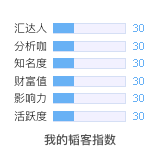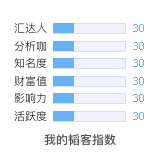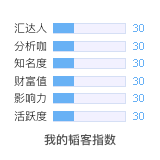Dollar Gains as Fed Minutes May Show No Sign Fed Will Cease Rate Increases
Nov. 22 (Bloomberg) -- The dollar approached its highest in more than two years against the yen and gained versus the euro before the release of minutes that may reinforce expectations the Federal Reserve will keep raising interest rates.
The Fed lifted its target rate seven times so far this year, boosting the dollar for three consecutive quarters. Fed Bank of Chicago President Michael Moskow said yesterday that policy makers may need to raise borrowing costs beyond a level that neither spurs nor restrains growth.
``The Fed is going to keep going,'' said Daragh Maher, a currency strategist in London at Calyon, the securities unit of Credit Agricole SA. ``That keeps the dollar on the front foot today.''
Against the yen, the dollar rose to 119.40 at 9:07 a.m. in New York, from 119.04 late yesterday, according to electronic foreign-exchange dealing system EBS. The dollar climbed to 119.57 yen on Nov. 16, the strongest since August 2003. The U.S. currency gained to $1.1699 per euro from $1.1726.
The Fed will release the minutes of its Nov. 1 meeting, when it lifted the benchmark rate for the 12th time since June 2004, to 4 percent. The report is due at 2 p.m. New York time.
Futures traders expect the Fed to increase its target rate at least twice by March, to 4.5 percent. Ben S. Bernanke may continue the plan after he succeeds Fed Chairman Alan Greenspan, who retires on Jan. 31.
``We are going to get at least two more moves under the Greenspan era and I think even beyond that we'll see further moves from Bernanke,'' said Derek Halpenny, a currency strategist in London at the Bank of Tokyo Mitsubishi Ltd., a unit of Japan's biggest bank. ``Momentum is clearly with the dollar.''
UBS Forecast
UBS AG, the world's second-biggest currency trader, yesterday lifted its one- and three-month forecast for the dollar to 122 yen from 118 and 116, respectively, the second time this month it has revised its prediction.
The Bank of Japan ``will be slower to tighten policy going forward,'' hurting the yen against higher-yielding currencies such as the dollar, strategists led by Mansoor Mohi-Uddin in London said in a research note sent to clients.
Japan's central bank has kept its so-called ``quantitative- easing'' policy of flooding the banking system with cash and keeping interest rates near zero since 2001 to help overcome deflation.
Moskow `Comfort Zone'
``Even if the funds rate were at neutral, further changes in policy may be appropriate,'' Moskow said in New York in the text of a speech as part of the Market News International Lecture Series. ``With inflation at the upper end of my comfort zone, an unexpected increase in inflation would be a serious concern.'' Moskow votes on interest-rate policy this year.
Inflation outside of food and energy will probably accelerate next year, according to a survey by the National Association for Business Economics. The so-called core consumer price index will rise 2.4 percent from the fourth quarter of 2005 to the fourth quarter of 2006, up from a 2.1 percent gain for the same period ending this year, based on a survey of 45 economists conducted Oct. 28 to Nov. 11.
Traders pared bets on how high the European Central Bank will raise rates after President Jean-Claude Trichet yesterday said he doesn't expect ``a series'' of increases. The ECB has kept its key rate at 2 percent since June 2003. The ECB will hold its next meeting Dec. 1, and the Fed will meet on Dec. 13.
``Sentiment to buy the euro against the dollar is declining,'' said Minoru Shioiri, a Tokyo-based senior manager of Mitsubishi UFJ Securities Co., a unit of Mitsubishi UFJ Financial Group Inc., the world's biggest lender by assets. ``Trichet showed a skeptical view on a series of rate hikes'' in Europe.
French Spending
Consumer spending in France, Europe's third-largest economy, on manufactured goods fell for a second month in October, a government report showed today. Those purchases, accounting for about 15 percent of the economy, declined 0.6 percent from September.
The yield on the three-month Euribor futures contract due in December yesterday fell 2 basis points to 2.51 percent. The contracts settle to the three-month euro interbank offered rate, which has averaged about 14 basis points more than the ECB's key rate since the currency's introduction in 1999.
The difference in yield between 10-year U.S. Treasury notes and similar-maturity German debt is 0.98 percentage points, compared with 0.95 percentage points late on Nov. 18. The gap has averaged 0.48 percentage point over the past two years.
``The dollar bears have been beaten,'' said David Mozina, a currency strategist at Lehman Brothers Holdings Inc. in New York. ``They're holding onto slippery vines. We'd recommend buying dollars.'' He expects the dollar to trade at $1.17 per euro at the end of the year.
发表于:2005-11-22 14:38只看该作者
2楼
·#¥%—……%—%¥#……—*:@:@:@:@:@
发表于:2005-11-22 14:39只看该作者
3楼
Everything is possible, anything else.
韬客外汇论坛TALKFOREX.COM
发表于:2005-11-22 14:41只看该作者
4楼
原帖由 顶 于 2005-11-22 22:39 发表 Everything is possible, anything else.
发表于:2005-11-22 14:41只看该作者
5楼
anything else.
发表于:2005-11-22 14:53只看该作者
6楼
原帖由 happy88888 于 2005-11-22 22:41 发表 anything else.
7楼
Nov. 21 (Bloomberg) -- Federal Reserve Bank of Chicago President Michael Moskow said interest-rate increases may be needed even after the Fed's benchmark rate reaches a level that neither spurs nor restrains economic growth.
``Even if the funds rate were at neutral, further changes in policy may be appropriate,'' Moskow said in a speech in New York as part of the Market News International Lecture Series. ``With inflation at the upper end of my comfort zone, an unexpected increase in inflation would be a serious concern.''
The remarks were posted on the Chicago Fed's public Web site earlier today.
The Fed's rate-setting Open Market Committee raised its main interest rate on Nov. 1 by a quarter percentage point for the 12th meeting in a row, to 4 percent, and signaled it may do so again. The Fed will release the minutes of that meeting tomorrow. The rate increases are part of a Fed effort to reach a level where the economy can grow at its optimal pace without stoking inflation -- the so-called neutral rate.
Moskow said ``we're currently near the bottom'' of a range for the ``neutral'' rate. While he didn't give a specific estimate for the range, San Francisco Fed President Janet Yellen said Oct. 18 that it may be from 3.5 percent to 5.5 percent.
In response to an audience question, Moskow said ``there's no mechanical group of numbers that the Fed looks at to say, `We are now there'' at the neutral level. Determining the neutral rate with any precision is ``impossible,'' he said.
Inflation
Other Fed officials, including Chairman Alan Greenspan, have said they don't know exactly what the neutral rate is.
Moskow reiterated comments from Nov. 15 that the Fed may push rates higher because employment and economic growth are at levels that may trigger faster inflation.
``If inflation or inflation expectations were to rise persistently, then policy clearly would have to be tightened further,'' Moskow said in the speech. ``Of course, other events could transpire that result in prospects for inflation and growth that would be consistent with a less firm policy stance.''
Moskow said future Fed rate moves will be based on ``changes in economic prospects'' and would not be ``a mechanical reaction to the next number on inflation and employment.''
The central bank has been trying to prevent inflation from taking hold as economic growth accelerated to a 3.8 percent annual rate in the third quarter, the 10th straight quarter above 3 percent, and consumer prices rose in September by the most in 25 years. Prices fell back in October, rising at the slowest pace in four months.
``Current financial market data and consumer surveys suggest that long-run inflation expectations remain contained,'' Moskow said.
Upper End
The Chicago Fed Bank president said the central bank's preferred measure of inflation, the personal consumption expenditure index minus food and energy, rose by 2 percent during the last 12 months, at ``the upper end of the range that I feel is consistent with price stability.''
After the speech, Moskow said he favors a 1 percent to 2 percent inflation range and that 1 percent is the lowest acceptable level.
Investors expect the Fed to raise the overnight lending rate a quarter point at the next FOMC meeting on Dec. 13 and again on Jan. 31, when Greenspan retires, according to trading in fed funds futures markets. Ben S. Bernanke, a former Fed governor and the White House's nominee to replace Greenspan, was approved by the Senate Banking Committee last week and awaits a confirmation vote by the full Senate.
Sustainable Growth
While Hurricanes Katrina and Rita damped the economy, ``sound underlying economic fundamentals appear to be supporting self-sustaining economic growth,'' Moskow said. ``Slack'' that had built up in the economy, especially in the labor market, ``has been mostly eliminated'' as the unemployment rate has fallen, he said. Even so, economic risks remain, including a slowdown in housing price gains and higher energy costs, he said.
``My current thinking is that if there is some adjustment, some slowdown in the rate of increase in housing prices in some markets, or if we even had a reduction in housing prices in some markets, it would have a modest impact on overall consumer spending,'' Moskow told reporters after the speech.
Moskow, 67, a voting member of the FOMC this year, has led the Chicago Fed since 1994. He has never dissented from an interest-rate decision.
Deficits
Moskow cited long-term economic challenges, including the federal budget and current-account deficits, which are ``not sustainable indefinitely.'' The deficit in the current account, the widest measure of trade, totaled $195.7 billion in the second quarter, or 6.3 percent of gross domestic product, compared with 5.7 percent of GDP a year earlier.
``National saving will have to rise'' to make up for the drop in capital inflows once the current-account deficit narrows, Moskow said.
Earlier today, the Conference Board reported that its index of leading economic indicators in the U.S. rose in October for the first time in four months as the labor market improved and companies in the South rebounded after three hurricanes.
The gauge, which measures the likely performance of the U.S. economy in the next three to six months, rose 0.9 percent after September's revised 0.8 percent decline, the New York-based research group said today.
To contact the reporter on this story:
Scott Lanman in Washington at [email protected]
韬客外汇论坛TALKFOREX.COM
发表于:2005-11-22 15:31只看该作者
8楼
誰給翻譯一下,機器翻譯的就不要了














